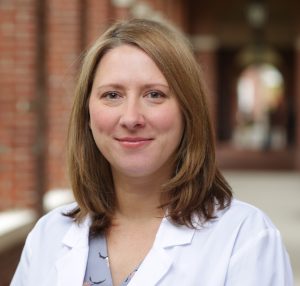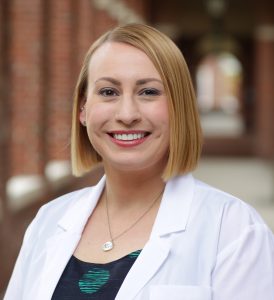
Program Description: This presentation will address cognitive sequelae of covid 19 including delirium syndromes, but also stroke, and hypoxic injuries as well as potential mechanisms of these acute and chronic brain injuries, longer-term outcomes (as they become available) and explore how we adapt traditional brain injury evaluations and treatment for this special population.
About the Presenters:
 Julieanne Shulman, Psy.D., Chief, Rehabilitation Psychology and Neuropsychology, Burke Rehabilitation Hospital/Montefiore Medical Center, received her B.A. in psychology from the University of Rochester and her M.A. and Psy.D. in Clinical Psychology at Yeshiva University’s Ferkauf Graduate School. She completed an APA accredited internship at the Rusk Institute/NYU Langone Medical Center, where she focused on neuropsychology, cognitive remediation and psychotherapy with a medically complex patient population. Dr. Shulman went on to further specialize in neuropsychology with children, adolescents and adults during her post-doctoral training. Prior to becoming Chief of Rehabilitation Psychology and Neuropsychology at Burke Rehabilitation Center/Montefiore Health System, she served as the Coordinator for the Neuropsychology Service at the New York State Psychiatric Institute where she was appointed Assistant Professor of Medical Psychology in Psychiatry at Columbia University’s College of Physicians and Surgeons. She currently oversees the Rehabilitation Psychology and Neuropsychology Service at Burke Rehabilitation Hospital/Montefiore Medical Center where she also co-directs the psychology externship training program. Dr. Shulman serves as an Assistant Professor in the Arthur S. Abramson Department of Physical Medicine and Rehabilitation at the Albert Einstein College of Medicine. Dr. Shulman brings a strong background in Cognitive Behavioral Therapy (CBT) to her work, applying the latest, research-based advances in her treatment of patients with a variety of adjustment, anxiety and mood disorders.
Julieanne Shulman, Psy.D., Chief, Rehabilitation Psychology and Neuropsychology, Burke Rehabilitation Hospital/Montefiore Medical Center, received her B.A. in psychology from the University of Rochester and her M.A. and Psy.D. in Clinical Psychology at Yeshiva University’s Ferkauf Graduate School. She completed an APA accredited internship at the Rusk Institute/NYU Langone Medical Center, where she focused on neuropsychology, cognitive remediation and psychotherapy with a medically complex patient population. Dr. Shulman went on to further specialize in neuropsychology with children, adolescents and adults during her post-doctoral training. Prior to becoming Chief of Rehabilitation Psychology and Neuropsychology at Burke Rehabilitation Center/Montefiore Health System, she served as the Coordinator for the Neuropsychology Service at the New York State Psychiatric Institute where she was appointed Assistant Professor of Medical Psychology in Psychiatry at Columbia University’s College of Physicians and Surgeons. She currently oversees the Rehabilitation Psychology and Neuropsychology Service at Burke Rehabilitation Hospital/Montefiore Medical Center where she also co-directs the psychology externship training program. Dr. Shulman serves as an Assistant Professor in the Arthur S. Abramson Department of Physical Medicine and Rehabilitation at the Albert Einstein College of Medicine. Dr. Shulman brings a strong background in Cognitive Behavioral Therapy (CBT) to her work, applying the latest, research-based advances in her treatment of patients with a variety of adjustment, anxiety and mood disorders.
 Jamie Twaite, Ph.D., Burke Rehabilitation Hospital/Montefiore Medical Center, received her B.A. in biology from Bard College, her M.A. in psychology from Teacher’s College, Columbia University, and her Ph.D. in Clinical Psychology with Neuropsychology Emphasis from the City University of New York, Queens College. She completed an APA accredited, neuropsychology-focused internship at Henry Ford Hospital, which included further specialized training in epilepsy, movement disorders, and sports concussion management. Afterward, she completed a two-year neuropsychology fellowship at the Institute of Living and Hartford Hospital, emphasizing the assessment of acute and chronic stroke and neurologic conditions, memory disorders, and psychiatric illness. She is currently a clinical neuropsychologist at Burke Rehabilitation Hospital/Montefiore Medical Center and serves as the Director of the Neuropsychology Externship Program and co-director of the Concussion service. She is also appointed as Assistant Professor in the Arthur S. Abramson Department of Physical Medicine and Rehabilitation at the Albert Einstein College of Medicine. Dr. Twaite applies her strong background in neuropsychology to provide comprehensive assessment and treatment planning for a range of medically and neurologically complex rehabilitation patients, while also cultivating her interest in providing evidence-based care to support adjustment in individuals with new spinal cord injury.
Jamie Twaite, Ph.D., Burke Rehabilitation Hospital/Montefiore Medical Center, received her B.A. in biology from Bard College, her M.A. in psychology from Teacher’s College, Columbia University, and her Ph.D. in Clinical Psychology with Neuropsychology Emphasis from the City University of New York, Queens College. She completed an APA accredited, neuropsychology-focused internship at Henry Ford Hospital, which included further specialized training in epilepsy, movement disorders, and sports concussion management. Afterward, she completed a two-year neuropsychology fellowship at the Institute of Living and Hartford Hospital, emphasizing the assessment of acute and chronic stroke and neurologic conditions, memory disorders, and psychiatric illness. She is currently a clinical neuropsychologist at Burke Rehabilitation Hospital/Montefiore Medical Center and serves as the Director of the Neuropsychology Externship Program and co-director of the Concussion service. She is also appointed as Assistant Professor in the Arthur S. Abramson Department of Physical Medicine and Rehabilitation at the Albert Einstein College of Medicine. Dr. Twaite applies her strong background in neuropsychology to provide comprehensive assessment and treatment planning for a range of medically and neurologically complex rehabilitation patients, while also cultivating her interest in providing evidence-based care to support adjustment in individuals with new spinal cord injury.
BIANYS is recognized by the New York State Education Department’s Office of the Professions as a provider for continuing competencies in the following areas: Social Work (#0539), Physical Therapy/ PT Assistants, Speech-Language Pathologist & Audiologists, Continuing Teacher and Leader Education (CTLE) and Occupational Therapy/ OT assistants. We also provide CBIS continuing education credit and Certificates of Attendance.
The Brain Injury Association of New York State thanks our Professional Development Series Presenting Sponsor, Goldblatt and Associates, for their support in underwriting this program.

